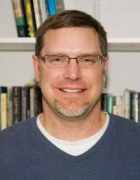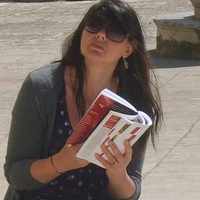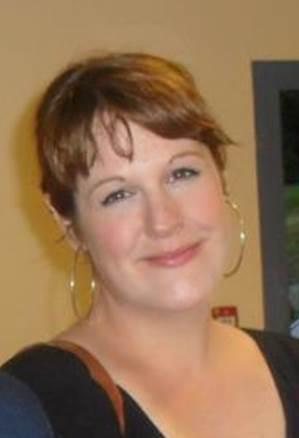Politics, materialities and representations of the body: November 29 2013
The Subject: Bodies and embodiments—the processes by which we engage with places, other things and people, technologies, environments and emotions—are at the forefront of human and medical science but also art, humanities and the social sciences. Real and also virtual bodies can be the explicit focus of and for our work or an implied hidden audience; bodies can be a force for doing things, a canvas for having things done to them (with or without consent) and/or the recipients of the end products of both artistic and scientific endeavours. A possible series of cross-cutting questions animate these engagements in the context of the new or future body across the realms of art, the humanities, the sciences and society. For example:
How does science and medicine now understand bodies? How does art and the humanities understand bodies? Are they different or similar in their understandings and engagements?
How do new medical practices and technologies re-create as well as make the body disappear or re-appear in new ways, forms and processing of being in the world?
How do bodies differentially experience places, spaces, relations, bioeconomies and (medical) technologies?
How do we bring to life the politicised bodies of individuals, communities and other groups struggling for social justice, change and new forms of representation and being?
How might these politicised bodies be worked upon by artists and scientists but also engaged in a more co-creative manner?
How is the body both static but also malleable in our engagements with other bodies but also our own embodiments in working to represent, work with and work on other bodies?
Are there ways to go beyond representation in our engagements with bodies or at least think about new and innovative ways to bring bodies into the artistic, scientific and social scientific work we do?
What are the new ways, forms and impacts of putting one’s body on the frontline of resistance, protest and politics as well as technology, science and also artistic endeavours?
How will bodies be affected by the new environments of the Anthropocene? How might our bodies relate to environmental challenges such as climate change? Are there ways that artists, scientists and medical professionals can ‘prepare’ us and our bodies for the Anthropogenic climate changed environments?
This event will bring together people from many disciplines looking to explore new and future forms of the politics, materialities and representations of the body.
Leading the event will be:
 Dr Mike Goodman: Mike is Senior Lecturer in Geography with current research interests in the cultural politics of ‘alternative’ foods, environment and development, celebrity politics and the shifting geographies, moralities and politics of consumer cultures.
Dr Mike Goodman: Mike is Senior Lecturer in Geography with current research interests in the cultural politics of ‘alternative’ foods, environment and development, celebrity politics and the shifting geographies, moralities and politics of consumer cultures.
 Dr Emma-Jayne Abbots is a Lecturer in Anthropology at the University of Wales Trinity Saint David and a Research Associate at the SOAS Food Studies Centre, University of London. A political and economic anthropologist, her research centres on the cultural politics and practices of consumption and exchange, with a particular focus on food and eating. She has further interests in intimacies, materialities, the mediation of food/body knowledges, heritage practice, and rural sustainability. She is co-editor (with A. Lavis) of Why We Eat, How We Eat: Contemporary Encounters between Foods and Bodies (Ashgate, 2013).
Dr Emma-Jayne Abbots is a Lecturer in Anthropology at the University of Wales Trinity Saint David and a Research Associate at the SOAS Food Studies Centre, University of London. A political and economic anthropologist, her research centres on the cultural politics and practices of consumption and exchange, with a particular focus on food and eating. She has further interests in intimacies, materialities, the mediation of food/body knowledges, heritage practice, and rural sustainability. She is co-editor (with A. Lavis) of Why We Eat, How We Eat: Contemporary Encounters between Foods and Bodies (Ashgate, 2013).
 Dr Anna Lavis is a medical anthropologist whose work explores lived experiences of mental illness. As a Research Fellow at Birmingham University, she conducts applied qualitative research into first-episode psychosis, including into women’s experiences and those of young people treated through Early Intervention Services. Anna’s PhD focused on pro-anorexia and she continues to work on eating and bodily materialities; she co-edited Why We Eat, How We Eat: Contemporary Encounters between Foods and Bodies (with E-J Abbots, Ashgate 2013) and, as a Research Associate at Oxford University, she collaborates on investigations into media representations of obesity.
Dr Anna Lavis is a medical anthropologist whose work explores lived experiences of mental illness. As a Research Fellow at Birmingham University, she conducts applied qualitative research into first-episode psychosis, including into women’s experiences and those of young people treated through Early Intervention Services. Anna’s PhD focused on pro-anorexia and she continues to work on eating and bodily materialities; she co-edited Why We Eat, How We Eat: Contemporary Encounters between Foods and Bodies (with E-J Abbots, Ashgate 2013) and, as a Research Associate at Oxford University, she collaborates on investigations into media representations of obesity.
Where: The Anatomy Museum, Strand Campus, King’s College London
When: 3.00 to 7.00 PM on Friday November 29th 2013.
How to reserve a place: book here - registration is free. Numbers are strictly limited, and this is bound to be popular. So if you book, please make sure you come!
Comments are closed.


